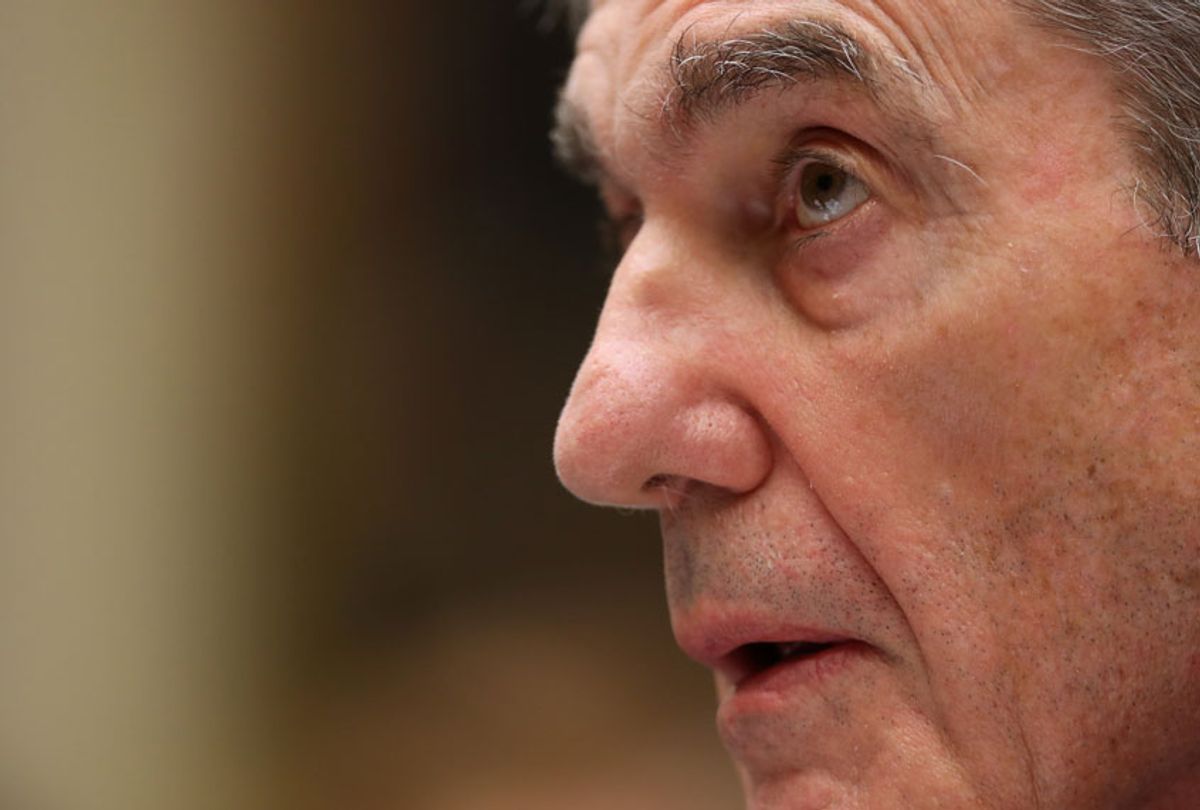Robert Mueller, the former special counsel, condemned President Donald Trump's repeated praise for WikiLeaks during the 2016 election in a public appearance before Congress.
Mueller, who testified publicly before the House Judiciary and Intelligence panels on Wednesday about his investigation into Russian election interference and alleged obstruction of justice by the president, criticized the president — perhaps for the first time — for his apparent embrace of the thousands of emails stolen from Democrats and published by WikiLeaks during the 2016 election cycle.
"Problematic is an understatement," Mueller said, referring to Trump's behavior.
His comment came after Rep. Mike Quigley, D-Ill., read several tweets in praise of the whistleblower website that Trump shared online in the month leading up to Election Day, including: "I love WikiLeaks" and "Boy, I love reading those WikiLeaks."
Quigley then asked Mueller to comment on Trump's public statements in support of WikiLeaks.
"Problematic is an understatement in terms of what it displays in terms of giving some hope or some boost to what is and should be illegal activity," the former special counsel said.
The "illegal activity" likely refers to the hacking of emails by Russian intelligence officers, who published some 20,000 stolen pages of emails from the Democratic National Committee and Trump's rival, Hillary Clinton, during the 2016 election cycle.
Trump frequently praised WikiLeaks for publishing emails that reflected poorly on Clinton and urged his supporters to read the organization's latest cache of stolen emails at stops on the campaign trail in the home stretch of the race, occasionally reading directly from emails at his rallies.
Despite his well-documented embrace for the group, Trump said earlier this year: "I know nothing about WikiLeaks. It's not my thing."
Democrats have denounced Trump's "love" for WikiLeaks, arguing that he was openly embracing foreign election interference.
Mueller noted on Wednesday that while Russia's hacking was designed to help Trump clinch the presidency, "there were instances where Hillary Clinton was subject to much the same behavior." He also said Russia's interference in the election was "not a hoax," despite what Trump and some Republicans in Congress have argued.
Almost all of the Democratic candidates vying to take on Trump in 2020 have committed not to use hacked or stolen materials to attack their opponents. Trump, on the other hand, has made no such vow to forgo such tactics, even suggesting he would probably accept a future offer of foreign assistance.
Federal law "prohibits contributions, donations, expenditures and disbursements solicited, directed, received or made directly or indirectly by or from foreign nationals in connection with any election — federal, state or local," although there is some debate over the extent to which information, rather than money, can be deemed such a contribution. It is also illegal to conspire with a foreign government to influence the outcome of a U.S. election.
Mueller testified publicly before Congress about his nearly two-year investigation into Russian interference in the 2016 election, alleged ties between Trump's campaign and Moscow and whether the president obstructed justice.
The former special counsel concluded there was no conspiracy on behalf of the Trump campaign to coordinate with Russia to influence the outcome of the 2016 election. He did not reach a conclusion on whether the president had attempted to obstruct justice, though he detailed at least ten instances of possible obstruction by the president in his report. Mueller did not exonerate Trump, and pointedly said he would have exonerated the president if he could have.
Wednesday's hearing marks Mueller's first public appearance related to his investigation since delivering his 10-minute statement on May 29, during which he detailed his findings and explained his decision not to reach a conclusion on whether Trump obstructed justice.
Reluctant to appear publicly before Congress, Mueller is appearing after being subpoenaed.

Shares